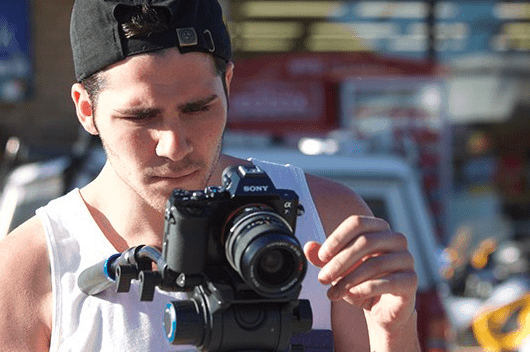
When you think of someone at the age of 25 in today’s society, generally they may have just completed their studies, are in the throes of travelling the world, or even dipping their toes into the unknowns of a new career. And then there is Panayioti Yannitsos, a Greek-Canadian film-maker who has completed a feature-length documentary, Freedom Besieged, about the current economic and political climate of Greece with specific attention on how it has impacted the development of the nation’s youth.
What started as an idea to film a youth basketball camp in his mother’s village became a need to delve into the psyche of Greece’s youth and the challenges they face, which came about following a dinner with his friends in Athens. It was on this occasion that Panayioti witnessed first-hand the extent of how defeat and indifference had seeped into the mentality of an entire generation that was yearning for more.
The documentary sees a list of some of the biggest names in the intellectual, political, and international community being paired with a 29-year-old Uber driver in central Athens, a 22 year old photographer working in the anarchist neighbourhood of Exarcheia, and a 30 year old entrepreneur building an eco-village in the mountains of Euboea. The list is impressive, and includes world-renowned intellectual Noam Chomsky, New Democracy Party Leader Kyriakos Mitsotakis, four time Olympic medallist Pyrros Dimas, Greek football legend Giorgos Karagounis, Chief Spokepserson of the European Commission Margaritis Schinas, Professor and Stateswoman Eleni Portaliou, and many more.
GCT recently spoke with Panayiotis about his insight into the reality facing the youth of Greece, how he went about making the documentary, common misconceptions, and his belief that Greece can bounce back from the crisis to provide a brighter future for the young generation.
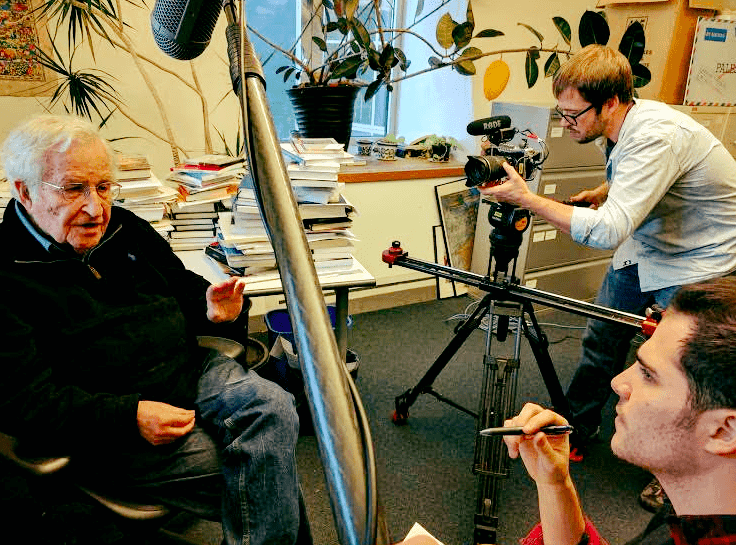
How did you get into the film industry?
My mother is a theatre actress, director, and educator. That definitely influenced me from an early age. I watched my father run a restaurant and manage people. I had been a closet writer since the third grade and even before that, I was running around in a Batman costume. It all feels like a bit of a blur, but I picked up a camera at 16 years old, told my first real story at 17 years old and became addicted to the high.
What led to you deciding to make this documentary?
I had always wanted to tell the story of John Karkalatos’ youth basketball camp in the village of Kiveri in Argolida, where my mother’s family is from. I met fellow Canadian John Karkalatos, on one of my first visits when I was 10 or so years old. A local farmer who ran a basketball camp in the village, he let me join his camp and that was how I was able to assimilate with the local youth. Fifteen years later, his camp has become a major story in this film. That is all this film was ever meant to be; the story of one modest farmer and his unique influence on the development of rural, Greek youth.
I then spent an evening around the dinner table with my friends in Athens, all in their 20s, and asked them their thoughts on the current economic and political climate of the nation. This was in 2013. What came out was a troubling indifference. “What’s the point in talking about it anymore? Who will listen?” I remember hearing from someone whom I considered to be one of the brightest young Greeks I knew. I had a knot in my stomach. There was a much larger conversation about the future that we needed to have that night in Athens, but it never happened. And so I hope this film helps fill that void and replies, “We’re listening.”
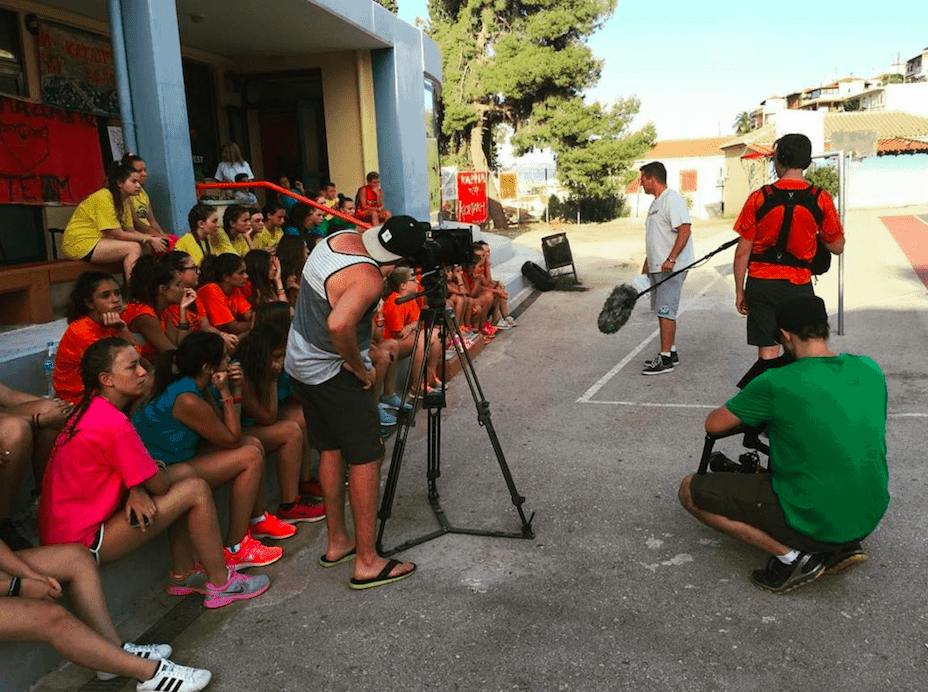
How did you go about choosing who would be featured in the documentary?
I had this dream of putting this conversation, the development and psychology of youth in Greece, into the mouths of some of the world’s most well-respected politicians, intellectuals, and experts. The goal was to pair them with the 28 year old Uber driver in central Athens or a young farmer in the mountains of Euboea island and to build this bridge of communication through film. I received early criticism, because how dare I ask a non-Greek or even a Greek living abroad to comment on the current Greek story? But a friend once told me, Greece in many ways is a pot full of fertile soil, waiting for new ideas to help fertilize its territory and flourish. That exploration carries no reservations.
I made a pact that my door would remain open for this timely discussion because when we talk about disenfranchised youth, it isn’t just a Greek story. One day I emailed Noam Chomsky while the film was still in its infancy, not expecting to hear back from him. Much to my surprise, he replied, and wanted to chat. Since then, we have embarked on three overseas trips and travelled to four different countries in pursuit of every politician, psychologist, physician, athlete, and professor who I believe can provide valuable insight for young Greeks willing to listen and engage constructively in return.
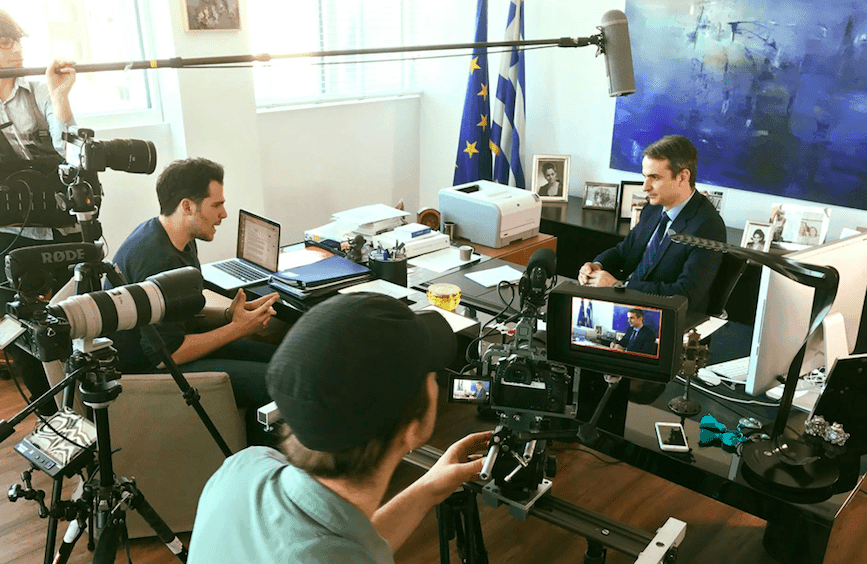
What was your main goal in making Freedom Besieged?
Conversation, above all else. This film does not exist to solve the Greek economic crisis or provide the secret to political stability. But through this film, I wanted to connect young Greeks with each other and the world around them. I wanted to explore the social environment we need to create psychologically for young Greeks to want to search for solutions again and to believe that they are out there. I wanted to shine a light on those young Greeks and community leaders who are helping along the development of Greek youth with compassion, innovation, and ruthless persistence. They deserve centre stage right now.
I remember receiving criticism one day, someone asking me how the stories I was highlighting, ones of successful Greek youth, were not reality. That they were the exception to the real “Greek story.” And what story is that? I hopped into an Uber once and we filmed a dialogue with the driver, who was in his late twenties. I asked him, “Do you want to talk with us?” He replied to me, “You have no idea how much I do.” He worked three jobs, carried two degrees, and answered questions that nobody had ever asked him with great depth and insight. It is for young people like him that I am making this film. Effective communication can lead to self-belief which in turn can lead to prosperity. Now is the time for our exceptions to become the rule and for those who govern to wake up and support them.
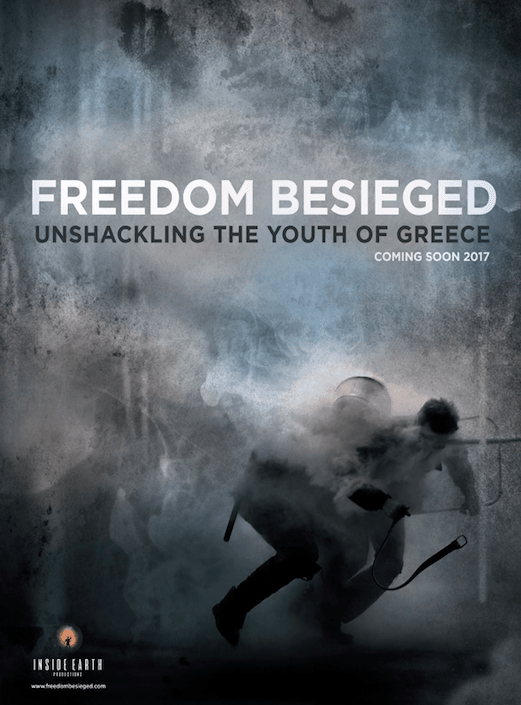
What was one of the highlights during filming?
There are some things I can’t share because it will spoil some amazing reveals in the film, but spending time filming with local farmer John Karkalatos and the 300 youth who take part annually in his basketball camp really inspired me. It was special to give back to a place that had given me so much over a decade ago. On the camp’s final night, John organized that all three hundred kids and an additional three hundred spectators stand, hands to their heart, and sing the Greek national anthem to the tune of a single violin. It was a special moment, because for two or so minutes six hundred Greeks stood as a collective front.
What was the biggest challenge?
Filming in the neighbourhood of Exarcheia, proclaimed as the home for the youth anarchist movement. In our experience, whenever we as a film crew walk in anywhere there is hesitation and scepticism from the locals. Exarcheia is a different type of neighbourhood. It’s an incredible place, full of some of the most creative and innovative young people you’ll meet, but as expected we, as media, were not welcomed with open arms. But it was of vital importance that we engage with young people there and I am glad that we did.
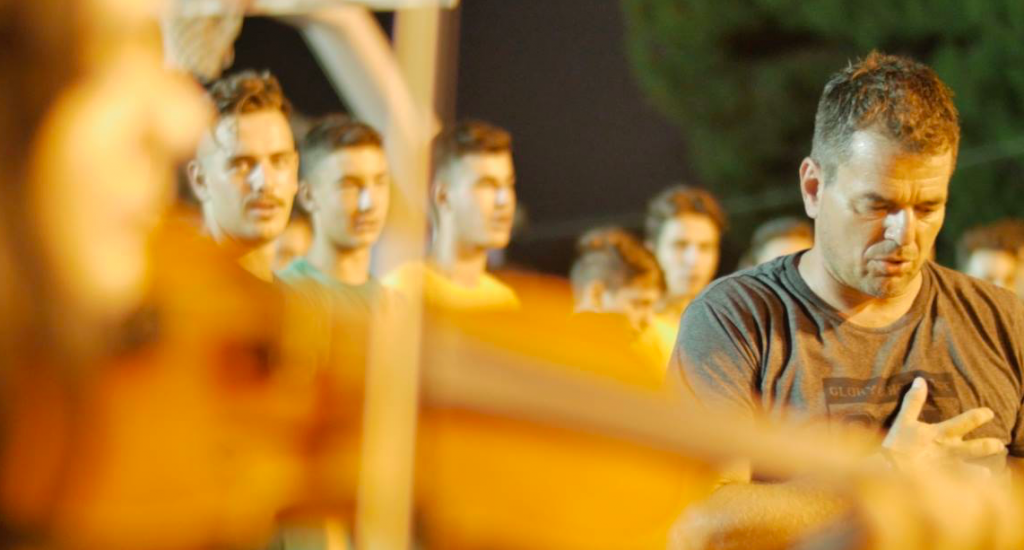
What has the reaction been from the Greeks in Greece?
I have met optimists who have found success in small places and believe the worst is over. I have met entrepreneurs who are just tired, in general, from having combatted the crisis full time over the last decade and have fallen dangerously close to a state of indifference. I have met young Greeks who have disassociated from the nation, fled to mountainous villages, and pursued a self-sustained life. It seems to me that young Greeks are tired of being framed as collective caricatures. There is not just one response to this crisis. These are complex human beings and we must make an effort to communicate with them in small groups, on a case by case basis. Not as fish in a large barrel.
What do you think is the biggest misconception about the youth of Greece right now and about the crisis?
This phrase, “the lost generation”. I am not naive to the staggering unemployment rates, poor working conditions, brain drain, and all the issues surrounding youth in Greece today. It has been well documented and you will find those things in this film because they are part of the truth. But we have downplayed all of the positive attributes of many young Greeks in the nation and that is unacceptable. This roping in of an entire generation under the umbrella of collective hopelessness is a troubling generalization and rhetoric that accomplishes very little nor is a reflection of my findings as a whole in the country.
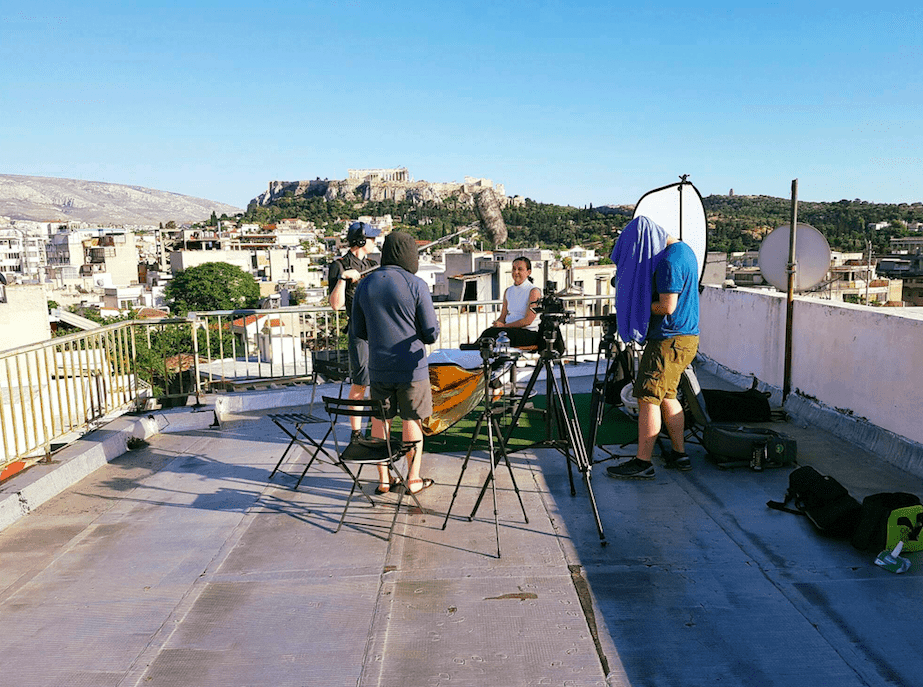
Do you believe Greece can get back on track?
Greece will move as its youth do. There are 15 year olds running around this country with emotional intelligence, a promising moral compass, and wonderful, innovative ideas. It is not my place, nor do I feel comfortable, commenting on the overarching trajectory of Greece but what I can tell you is that empowering the nation’s brightest young stars is where we need to start. They need to feel comfortable sharing their ideas and we need to become more comfortable listening to them. That is why this film is focused on communication and psychology. It is a conversation we need to be having.
Our governments need to provide incentives for sustainable growth. It is unacceptable that a young entrepreneur in central Athens is struggling to remain above water, taxed to death, with a business model that would otherwise be much more successful next door in Albania. But he loves his country and we take him for granted. If Greece is to get back on track, we need to hand the keys over to future generations much earlier than we have been. This new wealth of resilient, intelligent, and forward-thinking youth must be given the opportunity to infiltrate society at its highest levels. They are one of the few positives of this crisis. We can’t shut our young people out in place of “old friends” whose backs we must scratch. Enough with the numbing bureaucracy. Young people in Greece see it and are suffocated by it.
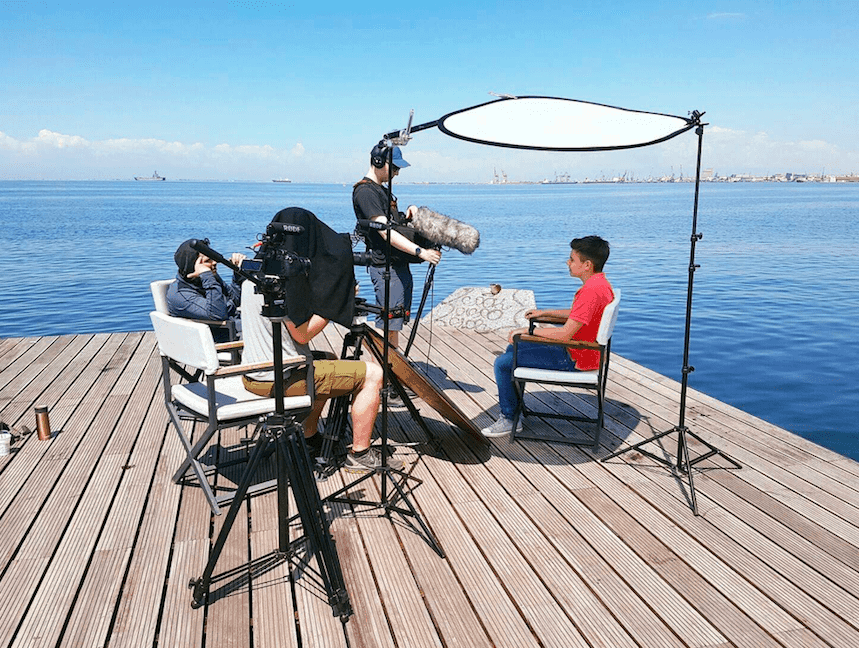
What did you learn throughout the whole process?
It is difficult to wrap it all up in one statement because I have had the pleasure to study this topic from the inside out and have in-depth discussions with amazing young Greeks and experts from around the world. Many of my beliefs have been turned on their head. But in short, I titled this film from the beginning, “Freedom Besieged”, because that is what I figured I would find. Since then, I’ve considered taking that “besieged” word out because I’ve realized many young Greeks today have taken their freedom back from the stranglehold of the crisis. I am much more optimistic now than I was before this exploration.
What can audiences expect from this film?
Audiences can expect a discussion focused more on psychology and social environment than economic policy and day-to-day Greek politics. The will bring audiences deep into the lives of young Greeks and community leaders battling the crisis in unique ways. This film asks questions pertaining to a deeper self-reflection amongst young Greeks and I feel provides an element of humanity that we haven’t seen. In addition, you will find this film provides a voice to an unprecedented amount of unique individuals from all demographics and corners of the political spectrum. It will be as if we are all seated under one roof around a long table and forced to have a civil and constructive debate. I think it is an important exercise.
When will Freedom Besieged be screened?
We are scheduled to finish the film in late September 2017. Following a festival run, our hope is for a limited theatrical release in Canada, the United States, and in Greece.
What’s next for you after Freedom Besieged?
On the documentary front, it is my practice that I remain cryptic, but you may find me next in Israel, Turkey, or Cyprus.


